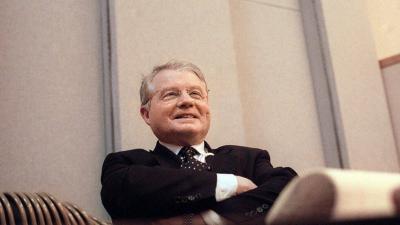Luc Montagnier, the Nobel Prize winner in Medicine for his discovery of the AIDS virus, passed away at the age of 89 at the American Hospital in Neuilly-sur-Seine, as reported by the mayor of the area near Paris, Jean-Christophe Fromantin, on Thursday to the "Agence France-Presse." Montagnier was awarded the Nobel Prize in Medicine in 2008 for his 1983 discovery, alongside collaborators Françoise Barré-Sinoussi and Jean-Claude Chermann, of the human immunodeficiency virus (HIV) that causes AIDS.
However, the French virologist stirred controversy repeatedly due to various theories he launched in recent years, which drew significant criticism from his peers in the scientific community. Following repeated statements since 2017 against vaccines, his name re-emerged in the last two years due to his hypotheses about the coronavirus responsible for the COVID-19 pandemic, which were denied by the scientific community, including one in which he claimed that the virus was developed in a lab and that vaccines were responsible for the emergence of variants. His statements about vaccines garnered admiration among anti-COVID vaccination groups.
In the 1980s, a handful of laboratories around the world were focused on discovering the source of a mysterious health problem called disease 4H, named as it primarily affected four groups beginning with the letter H in English: homosexuals, heroin addicts, Haitians, and hemophiliacs. Montagnier was born on August 8, 1932, in the Indre region of central France and had been leading a laboratory specializing in retroviruses, particularly those responsible for cancerous diseases at the Pasteur Institute since 1972.
In 1983, Montagnier, along with Barré-Sinoussi and Chermann, succeeded in isolating a new retrovirus temporarily named LAV (Lymphadenopathy Associated Virus), based on a sample taken by Dr. Willy Rosenbaum from a young homosexual patient who had lived in New York for a while. The discovery faced skepticism, particularly from the renowned American researcher Robert Gallo, specializing in retroviruses. Montagnier recalled three decades after the discovery that "for a year, we knew we had succeeded in identifying the virus (...) but no one believed us, and our publications were rejected."
In April 1984, U.S. Health Secretary Margaret Heckler announced that Robert Gallo had found the "likely" cause of AIDS, a retrovirus named HTLV-III. However, it became clear that this virus was entirely identical to the LAV retrovirus discovered by Montagnier's team a year earlier. A major controversy arose regarding the identification of the true discoverer of the human immunodeficiency virus, a matter of significant importance in determining who was entitled to receive the revenues associated with testing for the virus.
The dispute was resolved in a temporary diplomatic settlement in 1987, when the United States and France signed an agreement that officially described Gallo and Montagnier as "partners in the discovery." However, the definitive conclusion came two decades later when the Nobel Prize in Medicine was awarded not to Gallo but to Montagnier and Barré-Sinoussi.




